Researchers
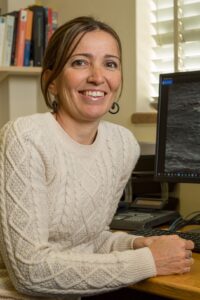
Prof Susana Clusella-Trullas
Physiological Ecologist
Google Scholar
Prof Clusella-Trullas’ research focuses on understanding how species respond to climate variability via behaviour, phenotypic plasticity and evolutionary change. She leads the CL•I•M•E research group and uses a combination of theoretical, experimental and field approaches to build a predictive understanding of how ectotherms, such as reptiles and insects, will respond further to ongoing climate change. Her interests also include the interactive effects of climate change and biological invasions on native diversity. She has led and co-authored several key analyses of patterns of physiological traits at global scales and strives to develop methods that can be used by managers to reliably assess vulnerability of species to thermal stress.
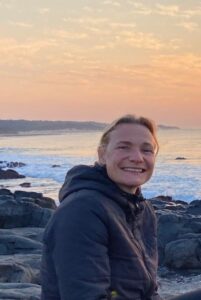
Prof Sophie Von der Heyden
Marine Molecular Ecologist
Google Scholar
Prof von der Heyden is a marine molecular ecologist. Her research is by necessity broad, but primarily focusses on the conservation and sustainable utilisation of species and the marine environment. Her particular interests lie in the applicability of molecular ecological and genomics tools to inform marine spatial planning, resilience and adaptation of marine species to ongoing and future change, as well as the impacts of changing marine communities on society. She is also the Lead Investigator on a national project on the conservation and restoration of seagrass ecosystems in South Africa.

Dr Heath Beckett
Ecologist
Google Scholar
Heath is an ecologist interested in vegetation mosaics, extreme events, vegetation dynamics, pattern formation and the spatial processes involved. He is particularly interested in understanding the enigmatic occurrence of ‘fire-sensitive’ forest vegetation in fire prone landscapes (savannas). His post-doc research focuses on understanding and communicating climate impacts in the context of multiple stable ecological states by developing and testing predictive models for species and ecosystem-level responses to, and changes under climate change and climate variability, in multiple state ecosystems. The aims being to (1) link predictive models within a multi-disciplinary environment, particularly through a resource economics approach, to support relevant management responses for adaptation and mitigation and (2) to identify and explore likely mechanisms underpinning the impacts of changing climate and ecological states on the production, ecosystem services and ecological processes in multiple state ecosystems.
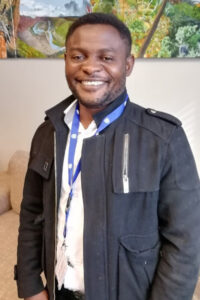
Dr Christian Lueme
Planetary and Public Health Medical Researcher
Research Gate
Dr. Lokotola Christian Lueme has a strong interest in climate change and health risk. His research area covers climate change, air pollution and health, sustainable urban health, and climate change migration and human health. His approach focuses on the quantification and prediction of the magnitude of health risk and uncertainties of health care resilience to climate change and air pollution. His current research focuses on planetary health education and integration of planetary health into primary health care and patient care.
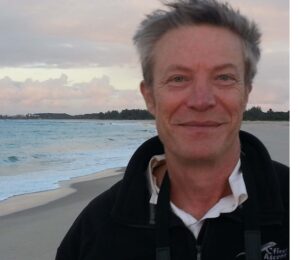
Prof Pedro Monteiro
Oceanographer
Google Scholar
Prof Monteiro is newly based at the School for Climate Studies where he leads the emerging research area of Carbon Dioxide Removal (CDR), a key global and regional science and governance policy challenge towards and beyond net-zero emissions. This reflects his interests in building a better understanding of how regional and global natural carbon sinks and ecosystems and carbon-climate-ecosystem feedbacks are linked and help impact the efficacy and sound policy development for the necessary negative emissions in the 21st Century. It builds on his longer term focus on the role of fine scale ocean physics on carbon fluxes in the Southern Ocean and its impact on the uncertainties in the carbon budget and long term carbon-climate projections. He was co-Coordinating Lead Author (CLA) for Chapter 5 – Carbon and Biogeochemical Feedbacks – of the IPCC AR6 – WG1 and Chief Oceanographer and head of the SOCCO programme at the Council for Scientific and Industrial Research (CSIR).
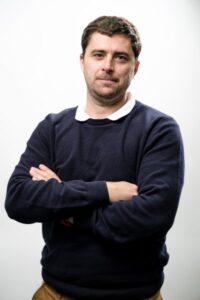
Dr Andrew Watson
Hydrologist
Google Scholar
Andrew is a hydrologist specialising in isotope hydrology, hydrological and groundwater modelling, with a focus on understanding groundwater recharge and aquifer baseflow in semi-arid environments. He has experience with surface water modelling software (J2000, ACRU, Pitman and SCS) vadose zone modelling (HYDRUS), groundwater modelling (MODFLOW) and is developing a new set of isotope enabled models (J2000iso). He has worked on building new hydrological models that incorporate a more detailed representation of groundwater components, which are needed to understand resources available for agricultural and domestic use. He has technical experience with setting up meteorological systems and has helped to develop the SASSCAL monitoring network for the west coast.
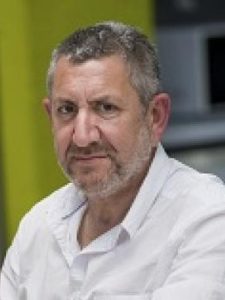
Prof Neville Sweijd
Strategic Lead
Research Gate
Dr Neville Sweijd is the Strategic Lead at the School for Climate Studies. He also is the Director of the ACCESS programme. Dr Sweijd completed his PhD in 2000 in marine sciences at the University of Cape Town. He has held several senior positions in the CSIR, as the Director of the BENEFIT programme in Namibia (now the Benguela Current Convention) and at the University of the Western Cape. He is the Deputy-President of the Scientific Committee on Problems in the Environment (SCOPE), and the Editor-in-Chief of Environmental Development. He has several research interests generally associated with changing seasonality and extreme events as they manifest in the marine sector and in human health.

Prof Neville Sweijd
Strategic Lead
Research Gate
Dr Neville Sweijd is the Strategic Lead at the School for Climate Studies. He also is the Director of the ACCESS programme. Dr Sweijd completed his PhD in 2000 in marine sciences at the University of Cape Town. He has held several senior positions in the CSIR, as the Director of the BENEFIT programme in Namibia (now the Benguela Current Convention) and at the University of the Western Cape. He is the Deputy-President of the Scientific Committee on Problems in the Environment (SCOPE), and the Editor-in-Chief of Environmental Development. He has several research interests generally associated with changing seasonality and extreme events as they manifest in the marine sector and in human health.

Prof Neville Sweijd
Strategic Lead
Research Gate
Dr Neville Sweijd is the Strategic Lead at the School for Climate Studies. He also is the Director of the ACCESS programme. Dr Sweijd completed his PhD in 2000 in marine sciences at the University of Cape Town. He has held several senior positions in the CSIR, as the Director of the BENEFIT programme in Namibia (now the Benguela Current Convention) and at the University of the Western Cape. He is the Deputy-President of the Scientific Committee on Problems in the Environment (SCOPE), and the Editor-in-Chief of Environmental Development. He has several research interests generally associated with changing seasonality and extreme events as they manifest in the marine sector and in human health.

Prof Neville Sweijd
Strategic Lead
Research Gate
Dr Neville Sweijd is the Strategic Lead at the School for Climate Studies. He also is the Director of the ACCESS programme. Dr Sweijd completed his PhD in 2000 in marine sciences at the University of Cape Town. He has held several senior positions in the CSIR, as the Director of the BENEFIT programme in Namibia (now the Benguela Current Convention) and at the University of the Western Cape. He is the Deputy-President of the Scientific Committee on Problems in the Environment (SCOPE), and the Editor-in-Chief of Environmental Development. He has several research interests generally associated with changing seasonality and extreme events as they manifest in the marine sector and in human health.
